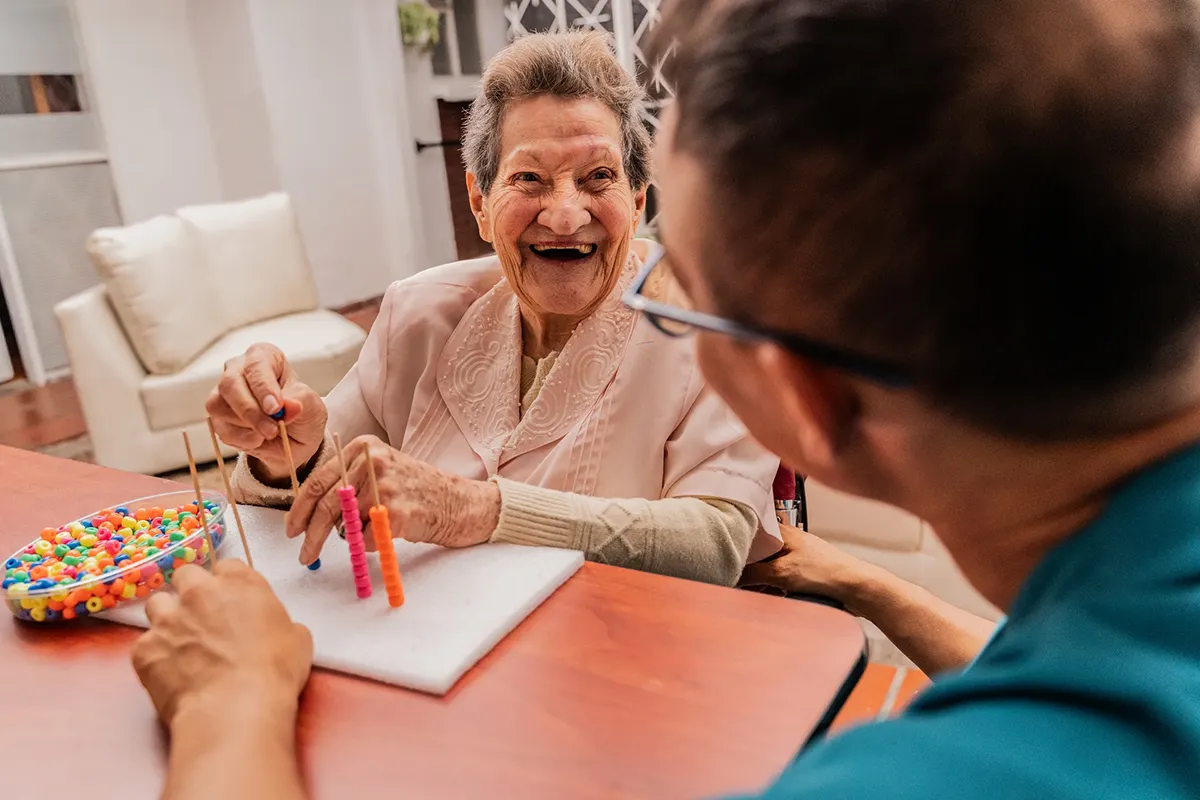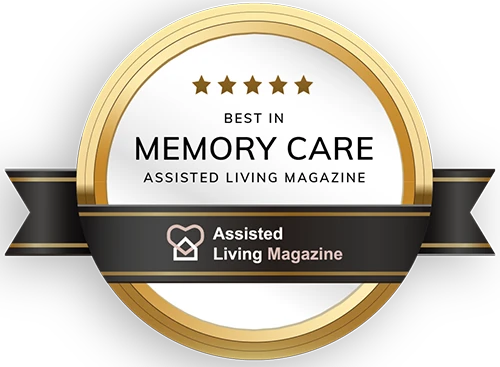
Helping seniors with dementia stay active and connected isn’t always easy—but choosing the right activities can make all the difference. The right mix of memory care activities keeps the mind engaged, supports emotional balance, and helps older adults feel more like themselves, even as things change.
Let’s explore some ideas that work well for people with dementia, especially those living in supportive communities like Palm Beach Memory Care in North Palm Beach, Florida.
Why Activities Matter in Memory Care
Keeping the Mind Active
Seniors with dementia benefit from activities that encourage mental engagement. This doesn’t mean solving puzzles all day. It means doing things that feel familiar and achievable—sorting objects by color, helping fold towels, listening to music they remember, or even enjoying nature.
Building a Daily Rhythm
A consistent routine gives comfort. Repeating favorite activities each day builds structure and reduces confusion. It helps seniors know what to expect, which eases anxiety and increases their sense of safety.
Emotional and Physical Well-being
Physical activity offers more than just movement—it’s linked to better health overall. According to the CDC, it can improve sleep, reduce anxiety, lower blood pressure, and help people maintain their independence longer. Over time, it supports brain health and lowers the risk of conditions like dementia, stroke, heart disease, and certain cancers.
Helping someone take a walk, stretch in a chair, or dance to their favorite tune is more than just “keeping busy”—it’s a vital way to boost their well-being and keep them feeling more like themselves.
Types of Activities That Work Well
Daily Living, Done Together
Even everyday tasks can be meaningful. In memory care, we often see joy in small things:
- Folding hand towels
- Setting the table
- Watering plants
- Sweeping the porch
These create a sense of contribution. They’re familiar, calming, and can be done at the resident’s pace.
Music That Stirs the Heart
Music has long been used to ease the symptoms of dementia. But it’s more than background noise—it can help bring back memories, lift mood, and build moments of connection. A recent study in Alzheimer’s Research & Therapy confirmed that music therapy may support memory, thinking, and emotional health, especially in older adults facing memory challenges.
We often see seniors who can’t recall recent conversations light up when they hear a familiar song from their youth. That recognition can create absolute joy—no explanation is needed.
Try:
- Playing songs from their young adult years
- Singalongs or hymn time
- Dancing (even seated)
- Playing rhythm instruments
Simple Creative Projects
Hands-on projects help seniors express themselves. Even those with advanced memory loss can enjoy activities like:
- Finger painting
- Using stamps or stickers
- Creating photo boards
- Playing with clay
The goal isn’t perfection—it’s expression and connection.
Group Activities for Connection
Why Social Interaction Helps
Engaging with others can reduce feelings of isolation and improve mood. According to research published by the National Library of Medicine, social connection supports better health outcomes for older adults.
Small Group Activities
- Reminiscence sessions (old photos, past jobs, stories from childhood)
- Bingo with pictures
- Balloon volleyball
- Garden walks or porch chats
These activities support bonding and keep everyone involved without stress.
Special Events and Celebrations
Birthdays, holidays, or themed days like “Sock Hop Sunday” or “Tropical Tuesday” make life more fun. Family members are encouraged to join, which helps them stay connected.
Safe and Enjoyable Outings
Outings can still be part of life, even for those with moderate dementia. With supervision and planning, some great ideas include:
- Visiting a quiet beach or park in North Palm Beach
- Going for a drive along the coast
- Feeding ducks or birdwatching
- Attending daytime musical events with low noise and crowds
Keep outings short, simple, and familiar. Avoid too much sensory stimulation, and always bring a backup plan.
For More Advanced Dementia Stages
As dementia progresses, activities may need to shift. Even then, meaningful engagement is still possible.
Try:
- Looking through photo books
- Listening to audiobooks or nature sounds
- Tactile comfort objects like soft fabric squares or therapy pets
- Hand massages with scented lotion
The focus is on calm, comfort, and human connection.
How Palm Beach Memory Care Makes This Happen
At Palm Beach Memory Care, our team creates an activity calendar that’s both engaging and gentle. We combine structure with flexibility so each resident finds moments of joy every day.
We focus on:
- Safe movement and physical activity
- Sensory and creative experiences
- Small group connection
- Meaningful involvement from families
We believe in keeping each person’s dignity and independence at the center of care.
Want to Learn More About Memory Care in Palm Beach?
Are you looking for a place that keeps your loved one engaged, safe, and supported? Palm Beach Memory Care offers more than a residence—it’s a community that honors every stage of memory loss. Our team welcomes families to be part of the experience and ensures every resident enjoys life with purpose and heart.

